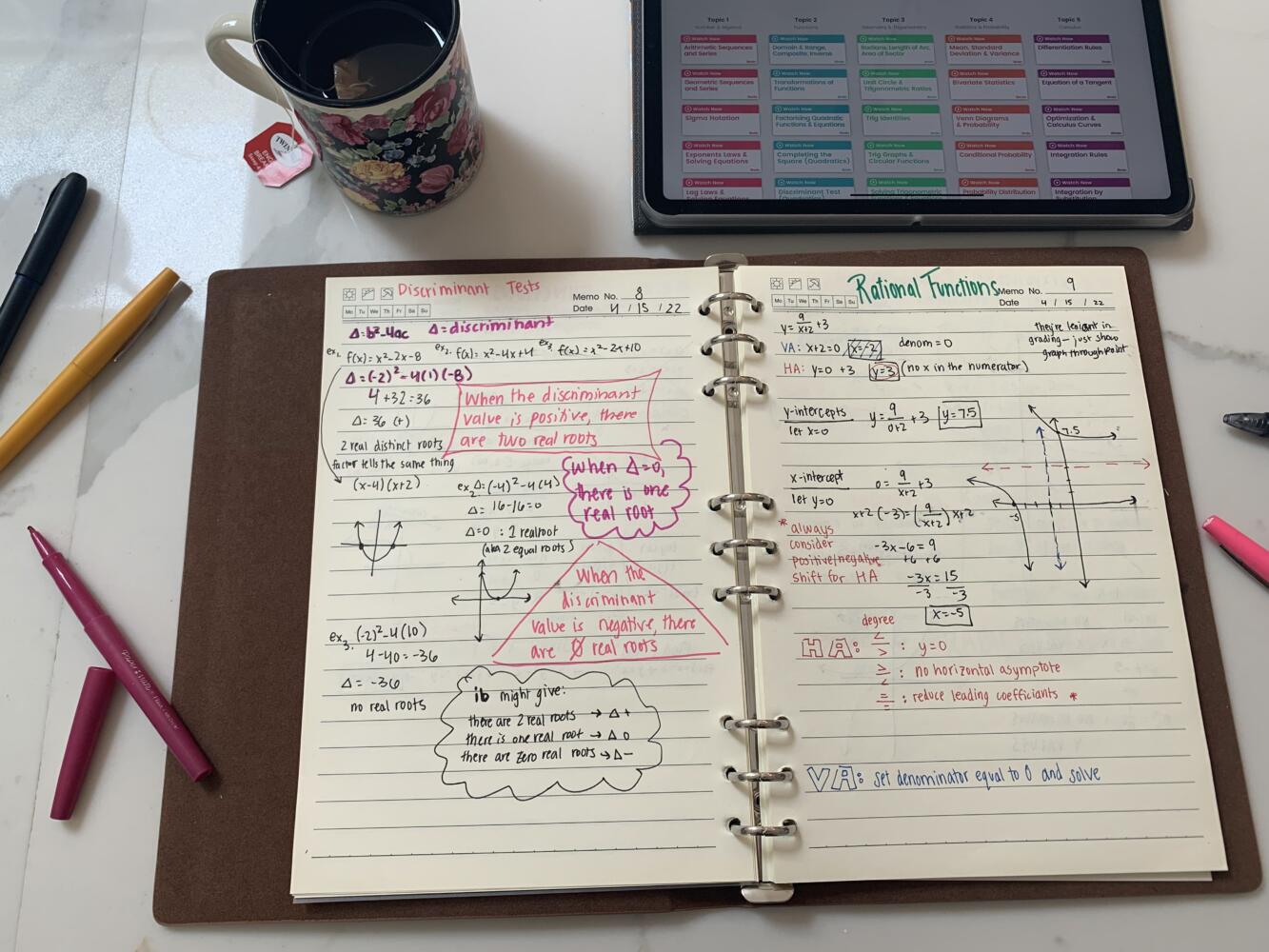
Danielle Generaux | Student Life Editor
April 28, 2022
With AP and IB testing starting, it’s time to cram. While there isn’t much time left, there is still an opportunity to prepare. Even within a short period, not all studying is equal. Knowing these tips will allow for effective studying and better test scores:
1. Know the test. Review the format of each of your tests to understand the types of questions that you will see. It is also important to consider the time allotted for each test and to practice timed test questions. Review the rubrics for the essays, and focus on strategies that will allow you to earn the most points possible on your AP/IB exam without having to waste too much time.
2. Ask for help. If you are confused about a subject, ask your teacher or even a fellow student. You could also ask one of the tutors on the Paper website or go to After School Tutorial to get help with a concept. It is imperative that you ask questions if you have them so that you understand the material you are studying.
“Take advantage of the experts around you,” said senior Madeline McDonald. “That means if your teacher is hosting a review session, go to it! Even if you don’t have any questions in mind, someone else may bring one up that you didn’t even realize you had.”
3. Host or join a study group. Study groups are very helpful as you can discuss the material out loud and build off of other people’s knowledge. You could also discuss study mnemonic strategies and individual study habits that help them learn.
4. Take practice tests. Taking practice tests will allow you to not only get used to the material of the class, but also to get a feel for the types of questions you will be asked and how the material you studied will be presented.
“I think that looking back on your old notes is really good,” said senior Izzy Duzman. “There are also a lot of good interactive YouTube videos (Heimler for history, AP central for all subjects, etc.) and, honestly, taking practice tests and MCQs/FRQs to study. A big thing though is taking breaks and not overworking yourself. It’s not worth being overwhelmed and overly stressed—definitely make sure to have balance and take breaks.”
5. Focus on the units that are weighted the heaviest. Most concept based AP classes have different units that are weighted as a different portion of the AP exams. Websites like albert.io can tell you the different percentages. Especially with limited time to study, specifically reviewing the content that will appear most often can significantly improve your score.
6. Go over past tests and quizzes. Many teachers test their students using AP/IB formatted questions, so their students will get a feel for the questions they will be asked on the exam. Going over these questions will help you feel more confident with the types of questions you are asked. Make sure to be especially focused on the questions you missed on past exams to find wholes in your knowledge.
“Reviewing your notes can become passive learning, so even though it may feel like a struggle to go through the questions, this practice is essential,” said McDonald.

7. Watch review videos. These videos are great for going over specific concepts or general topics and units. Sometimes reading explanations for concepts is not sufficient to learn complex topics, but if someone explains the concept verbally, it may be easier to understand and apply.
“I feel the most important tip if you still have gaps that your teacher, textbook, and classmates cannot fill for you, is supplement your own education!” said McDonald. “That means to take action by finding teachers online who explain the content in a different way. Some AMAZING examples of this would be “Heimler’s History” on YouTube for AP Euro, AP Gov and APUSH, and “Lyndeurozone Euro Simplified” on Spotify for AP Euro. These are FREE resources that made a drastic difference in my grades; I cannot recommend them enough.”
8. Make study guides or Quizlets. Making Quizlets or hand-written guides is dually effective; you will be studying as you make them and also creating a tool that you can use each day to review. You can focus the guides on key terms, formulas, or general knowledge; anything would work as long as you think the information is beneficial. If you don’t have the time to make a study guide or a Quizlet, there are hundreds you can find online that are amazing for review, though using a pre-made study guide is not as effective as making one yourself.
9. Be mindful! Oftentimes, spending hours reviewing notes, doing practice problems, and reading can feel like very hard work, but it might not be beneficial. When reviewing past notes, make sure to use a highlighter and pen to annotate, and consider writing down key information on a separate paper. When reading, continually check in with your comprehension and consider how relevant the information is to your performance on the test. Also, be mindful of your mental state. Studies have shown that it is more difficult to learn when stressed, so take short breaks to breathe, eat healthy snacks, and stretch between stretches of studying.
Regardless of how you feel about your knowledge of each test right now, it is not too late to get prepared. Happy studying and good luck, Tritons!

Leave a Reply